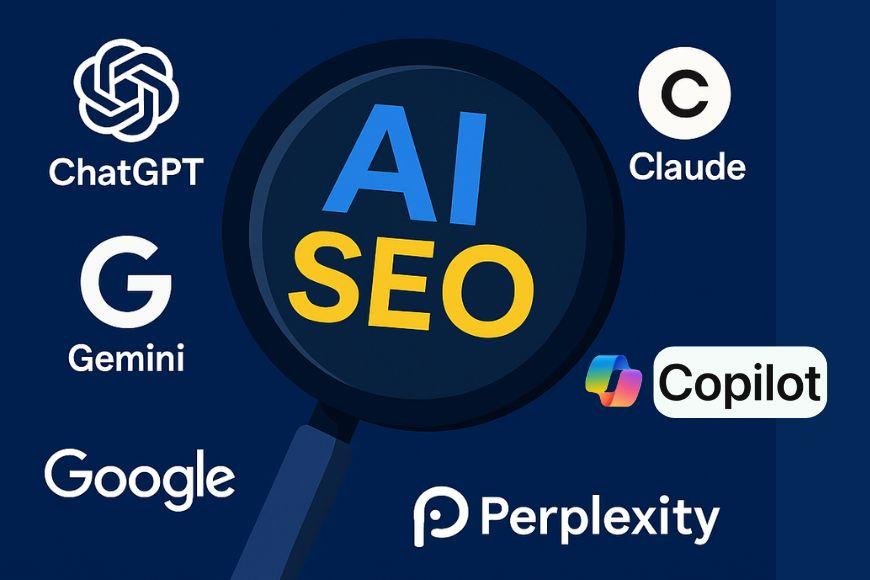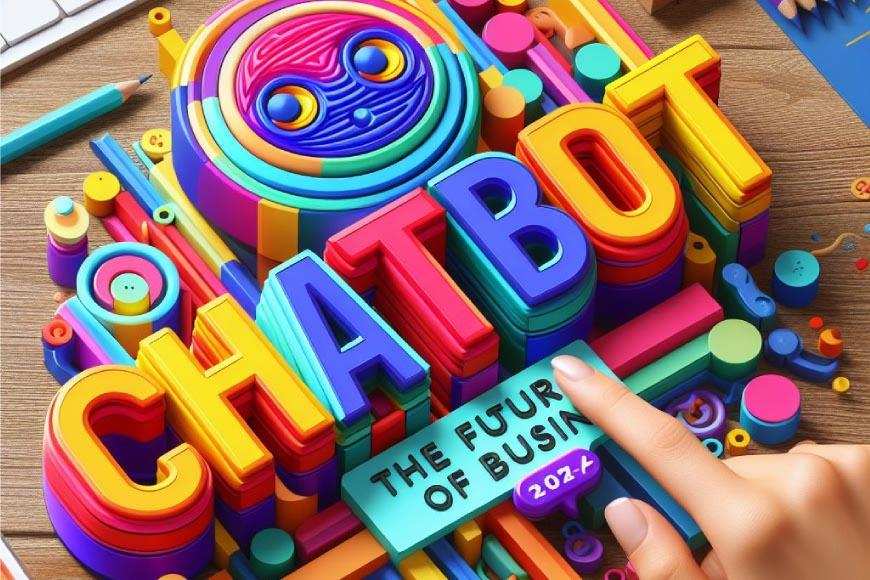In today’s ever-evolving digital world, SEO is no longer just about Google. If your business wants to stay visible and competitive, it’s time to go beyond traditional search engines and start optimizing your content for AI-powered platforms like ChatGPT, Claude, Microsoft Copilot, Gemini, and Perplexity. These tools are changing the way people search for information, and your brand needs to adapt.
In this post, we’ll explore how search is evolving, what AI platforms are doing differently, and how you can position your content to get discovered everywhere people search—not just Google.
Why Google Isn’t Enough Anymore
We all know Google is the giant of search. But AI tools like ChatGPT (OpenAI), Claude (Anthropic), Gemini (Google), and Perplexity (an emerging AI search interface) are now becoming search engines in their own right.
Instead of offering pages of links, these AI tools deliver quick, summarized, and often more accurate responses. This means the way we create and structure content must evolve if we want to stay in front of users.
Understanding the New AI-Powered Search Landscape
Traditional vs. AI Search
Traditional search engines like Google and Bing return ranked lists based on keywords, backlinks, and engagement signals. But AI-driven platforms look for relevance, clarity, structure, and context. They process massive amounts of content and extract answers in real-time.
In this new landscape, it’s not just about ranking high — it’s about being quotable, concise, and structured.
SEO Still Matters (Even More!)
Strong on-page SEO is still critical. AI tools often pull data from high-ranking websites, so your content must be well-optimized for Google first to even be considered by AI.
How AI Tools Discover and Select Content
ChatGPT (when browsing is enabled) leans on Bing and a wide range of indexed content. It looks for content that’s well-structured, clearly written, and informative.
Claude prioritizes detailed, long-form, logically structured articles. It favors factual accuracy and credible, professional tone.
Gemini, being a Google product, uses traditional SEO signals but can also pull from YouTube and Google Docs. Visual content matters here.
What about Microsoft Copilot? Where does it fit in this AI search landscape?
Microsoft Copilot is a powerful AI assistant integrated into the Microsoft ecosystem—especially through Bing and Office tools like Word, Excel, and Teams. For search, it’s built on GPT-4 and uses Bing’s index to answer questions directly inside apps. That means if your content is discoverable on Bing, it has a good chance of being referenced or summarized by Copilot too. It values well-optimized web pages, reliable sources, and real-world use cases that can be embedded into workflows (e.g., case studies, process documents, how-to guides).
Perplexity AI is unique. It shows direct citations in its responses, which means if your content is clear, credible, and well-sourced, it can be directly linked.
How to Optimize Content for AI-Powered Search
If you want to rank across both Google and AI interfaces, your content must:
1. Be Structured and Skimmable
Use:
- Short paragraphs (2–3 lines)
- Bullet points or numbered lists
- Clear, keyword-rich headings (H1, H2, H3)
- Question-answer format for FAQs
2. Use Schema Markup
Schema helps search engines and AI understand your content format. Add structured data like:
- Article schema
- FAQ schema
- How-to schema
3. Write Like You’re Teaching
AI tools love content that explains concepts in simple, factual language. Avoid sales-heavy jargon and fluff. Be clear, authoritative, and conversational.
4. Include Helpful Metadata
Make sure every page has:
- A clear meta title & description
- Published date & updated date
- Author bio with credentials (if possible)
5. Link Strategically
Add internal links to related posts and outbound links to trusted external sites. AI models check for topical relevance and source authority.
Don’t Forget About Video Content
Platforms like Google Gemini and ChatGPT (via YouTube plugins) consider video content too. Adding short explainer videos or product demos to your blog posts helps boost:
- Engagement rates
- Time-on-page
- Visibility on AI search
And YouTube videos themselves can get indexed and referenced in AI answers!
Future-Proofing Your Strategy for AI Search
To maintain visibility as AI evolves, here’s what you should be doing consistently:
- Update your content regularly for freshness.
- Monitor trending questions on ChatGPT and Perplexity.
- Use keyword tools like AlsoAsked and AnswerThePublic to see what people are searching.
- Repurpose content into multiple formats (text, video, visual).
What This Means for Your Business
If you’re only optimizing for Google today, you’re missing a big opportunity. AI tools are already answering questions on behalf of users — and your content could be featured if it’s formatted right.
Think about it: when someone types into ChatGPT, “What’s the best digital marketing strategy for 2025?” — wouldn’t you want your blog or guide to be part of that response?
By focusing on clarity, structure, trust signals, and helpfulness, you’re giving your content a competitive edge in both old and new search platforms.
Ready to Be Found Everywhere?
If you want your business to show up on Google and AI tools like ChatGPT, Claude, Gemini, and Perplexity, it’s time to shift from just SEO to AI-ready SEO.
At BRUsoft, we specialize in:
- Creating clear, structured content for human and AI readers
- Adding schema and metadata for discoverability
- Producing video content to boost engagement
Let’s make sure your customers find you — wherever they search.
Visit brusoft.in or message us on WhatsApp to get started.



